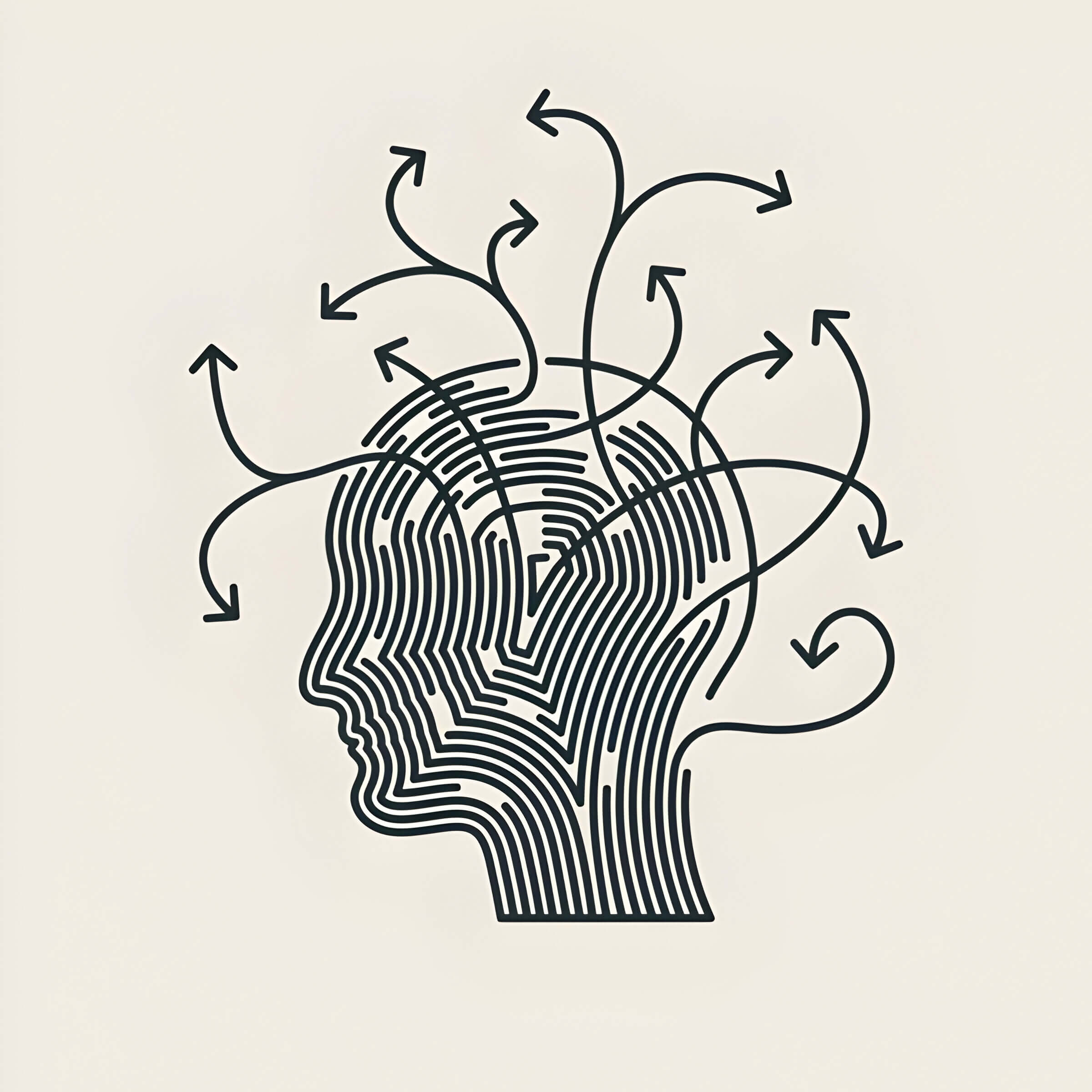Disease & Illness
ADHD Paralysis- What It Feels Like and How to Overcome It

Imagine feeling completely stuck, unable to start even the simplest task despite knowing what needs to be done. This is often called ADHD paralysis. In this article, we will explore ADHD paralysis, its symptoms, and the neurological reasons behind it. We will also offer practical coping strategies and tools for managing these overwhelming moments. By understanding ADHD paralysis, you can take steps to regain control and improve your daily life.
What is ADHD Paralysis?
ADHD paralysis, often referred to as ADHD mental block, is a phenomenon experienced by individuals with Attention Deficit Hyperactivity Disorder (ADHD). It occurs when someone becomes overwhelmed by the sheer number of tasks or decisions they need to make, leading to an inability to start or complete any of them. This state of paralysis can be frustrating and debilitating, significantly impacting daily life and productivity.
The definition of ADHD paralysis involves a temporary but intense feeling of being stuck or unable to move forward with tasks. This mental block is not due to laziness or lack of effort; rather, it stems from the unique ways in which an ADHD brain processes information and prioritizes actions. For those experiencing this condition, even simple tasks can seem insurmountable.
Understanding what causes ADHD paralysis can help in developing strategies to manage it. Factors such as high-stress levels, perfectionism, and an overwhelming workload contribute significantly. By breaking down tasks into smaller steps, creating structured routines, and seeking professional support when necessary, individuals with ADHD can better navigate these challenging episodes and improve their overall functioning.
The Symptoms and Experiences of ADHD Paralysis

ADHD paralysis is a phenomenon that many individuals with Attention Deficit Hyperactivity Disorder (ADHD) experience, often leaving them feeling stuck and overwhelmed. This condition can manifest in various ways, making it challenging for those affected to initiate or complete tasks. But what exactly does ADHD paralysis feel like?
One of the primary symptoms of ADHD paralysis is executive dysfunction, which impairs an individual’s ability to plan, prioritize, and execute tasks efficiently. This can lead to a sense of being mentally frozen or trapped in a cycle of indecision and inaction. For example, someone might sit down to start a project but find themselves unable to make even the smallest decision about where to begin.
In addition to executive dysfunction, those experiencing ADHD paralysis often report feeling an intense sense of frustration and helplessness. This emotional response can exacerbate the situation, creating a feedback loop where the stress of being unable to act further diminishes their capacity for effective action.
Understanding these symptoms is crucial for managing ADHD paralysis. Strategies such as breaking tasks into smaller steps, setting clear priorities, and using external reminders can help mitigate these challenges. By recognizing what ADHD paralysis feels like and addressing its underlying causes, individuals can better navigate their daily lives and improve their overall productivity and well-being.
The Science Behind ADHD Paralysis
ADHD paralysis, a phenomenon often experienced by individuals with Attention Deficit Hyperactivity Disorder (ADHD), can be perplexing and frustrating. Understanding the science behind it requires delving into the intricacies of ADHD brain function. At its core, ADHD paralysis occurs due to a combination of neurological factors that disrupt normal cognitive processes.
One of the primary neurological reasons for ADHD paralysis is related to how the brain processes information. Individuals with ADHD often have differences in their prefrontal cortex, the area responsible for executive functions such as planning, decision-making, and impulse control. When faced with tasks that require sustained attention or involve multiple steps, their brains can become overwhelmed more easily than those without ADHD. This cognitive overload can lead to a shutdown where initiating or continuing tasks feels nearly impossible.
Another factor contributing to ADHD paralysis is dopamine dysregulation. Dopamine is a neurotransmitter crucial for motivation and reward-based learning. In people with ADHD, dopamine levels are typically lower or less efficiently utilized, making it harder for them to feel motivated or rewarded by completing tasks. This lack of motivation can exacerbate feelings of paralysis when confronted with demanding activities.
Understanding these underlying mechanisms highlights why traditional methods of managing task-related stress may not be as effective for those with ADHD. It also emphasizes the importance of tailored strategies that consider these unique neurological patterns to help mitigate the effects of cognitive overload and improve daily functioning for individuals dealing with this condition.
Coping Strategies for Managing ADHD Paralysis
ADHD paralysis, a common challenge faced by individuals with Attention Deficit Hyperactivity Disorder, can feel overwhelming. However, there are several effective coping strategies for managing ADHD symptoms and overcoming ADHD paralysis.
One of the most effective methods is breaking tasks into smaller, manageable steps. By focusing on one small task at a time, the feeling of being overwhelmed can be significantly reduced. Additionally, setting clear and achievable goals can provide direction and motivation.
Another useful strategy is implementing structured routines. Consistent daily schedules help in creating a predictable environment that minimizes distractions and enhances focus. Utilizing tools such as planners or digital apps to organize tasks and set reminders can also be beneficial.
Mindfulness practices, such as meditation or deep-breathing exercises, play a crucial role in managing ADHD symptoms. These techniques help in calming the mind and improving concentration.
Moreover, seeking support from professionals like therapists or counselors who specialize in ADHD can provide personalized coping mechanisms for ADHD. They offer valuable insights and techniques tailored to individual needs.
Incorporating these strategies into daily life not only aids in overcoming ADHD paralysis but also contributes to overall well-being and productivity.
Tools and Resources to Help You Deal with ADHD Paralysis
Dealing with ADHD paralysis can be challenging, but there are numerous tools and resources available to help manage symptoms and improve productivity. One effective approach is utilizing ADHD management tools specifically designed to aid in organization and task completion. These tools often include features such as reminders, to-do lists, and time tracking, which can help keep you on track.
Productivity apps for ADHD are another valuable resource. Apps like Todoist, Trello, and Evernote offer customizable interfaces that allow you to break tasks into manageable steps, set deadlines, and prioritize your workload. These apps can help reduce the feeling of being overwhelmed by providing a clear structure for your daily activities.
Support groups for ADHD sufferers also play a crucial role in managing ADHD paralysis. Connecting with others who understand your experiences can provide emotional support and practical advice. Many online communities and local organizations offer forums where individuals can share strategies, discuss challenges, and celebrate successes together.
By leveraging these tools and resources, you can create a supportive environment that empowers you to overcome the challenges of ADHD paralysis effectively.
The Role of Professional Help in Addressing ADHD Paralysis
ADHD paralysis, often characterized by an overwhelming inability to initiate or complete tasks, can significantly impact daily life. Seeking professional help for ADHD paralysis is a crucial step towards managing this condition effectively. Therapy for ADHD offers structured approaches and coping strategies that can help individuals navigate their symptoms.
Working with an ADHD coach or therapist provides personalized support tailored to the unique challenges faced by those with ADHD. These professionals utilize evidence-based techniques to improve focus, organization, and time management skills. By addressing the root causes of ADHD paralysis through therapy, individuals can develop practical tools and strategies that foster greater productivity and overall well-being.
Professional intervention not only helps in managing immediate symptoms but also equips individuals with long-term strategies for success. Whether through cognitive-behavioral therapy (CBT) or coaching sessions focused on goal-setting and accountability, professional help plays a pivotal role in transforming how one copes with ADHD paralysis.
Conclusion- Taking the First Steps Towards Managing and Overcoming ADHD Paralysis
Managing and overcoming ADHD paralysis can seem daunting, but taking the first steps is crucial for long-term success. Understanding the nature of ADHD paralysis is the initial step.
Developing a structured approach can significantly mitigate these challenges. Start by breaking down tasks into smaller, manageable steps. This makes them less intimidating and easier to tackle one at a time. Utilizing tools such as planners, apps, or even simple to-do lists can help in organizing daily activities and setting clear priorities.
Incorporating regular breaks and physical activity into your routine can also be beneficial. Physical movement has been shown to improve focus and reduce stress, which can alleviate some symptoms of ADHD paralysis. Additionally, seeking support from friends, family, or professionals like therapists who specialize in ADHD can provide valuable insights and encouragement.
Mindfulness practices such as meditation or deep-breathing exercises may also play a role in managing symptoms by enhancing self-awareness and reducing anxiety levels.
Finally, remember that progress might be slow initially but celebrating small victories along the way will help maintain motivation. By taking these first steps towards managing ADHD paralysis, you pave the way for improved productivity and overall well-being.
Disease & Illness
Bowel Cancer Stomach Noises – What They Mean for Your Health

Bowel cancer, also known as colorectal cancer, is a type of cancer that begins in the large intestine or rectum. It is one of the most common types of cancer worldwide. Stomach noises, medically referred to as borborygmi, are the sounds produced by the movement of gas and fluids through the intestines. While these noises are typically harmless and a normal part of digestion, they can sometimes indicate underlying health issues.
The Connection Between Bowel Cancer and Stomach Noises
When it comes to understanding the early signs of bowel cancer, it’s crucial to pay attention to various gastrointestinal indicators. One such indicator that often raises concerns is abnormal stomach noises. While occasional stomach rumbling is generally harmless and usually a sign of hunger or digestion, persistent and unusual noises can sometimes point to more serious underlying conditions, including bowel cancer.
Bowel cancer symptoms are diverse and can often be subtle in the early stages. Alongside common symptoms like changes in bowel habits, unexplained weight loss, and blood in the stool, abnormal stomach noises should not be overlooked. These sounds may arise from disruptions in the normal movement of the intestines caused by tumors or other gastrointestinal issues.
It’s important to differentiate between normal digestive sounds and those that might signal a problem. Persistent gurgling, rumbling, or other unusual noises could indicate blockages or changes within the intestines that warrant medical attention. If these abnormal stomach noises are accompanied by other symptoms such as abdominal pain, bloating, or altered bowel movements, it becomes even more critical to consult a healthcare professional.
Early detection of bowel cancer significantly improves treatment outcomes. Therefore, recognizing gastrointestinal indicators of cancer like abnormal stomach noises can play a vital role in timely diagnosis and intervention. Always seek professional advice if you notice persistent changes in your digestive health alongside other potential symptoms of bowel cancer.
Common Symptoms of Bowel Cancer to Watch For

Bowel cancer, also known as colorectal cancer, is a serious condition that requires early detection for effective treatment. Recognizing the common symptoms can make a significant difference in outcomes. One of the primary bowel cancer signs to watch for is changes in bowel habits. This can include persistent diarrhea, constipation, or a change in the consistency of your stool that lasts longer than four weeks.
Abdominal pain is another key symptom. This pain may present as cramps, gas, or general discomfort and may persist over time without an obvious cause. Additionally, unexplained weight loss and fatigue are common colorectal cancer symptoms that should not be ignored.
Blood in the stool is one of the more alarming indicators and should prompt immediate medical consultation. This could appear as bright red blood or darker stools that resemble tar. Finally, feeling like your bowel doesn’t empty completely after a movement can also be a sign of bowel cancer.
If you experience any combination of these symptoms consistently, it’s crucial to seek medical advice promptly for proper diagnosis and treatment options. Early intervention remains the best strategy for managing colorectal cancer effectively.
When Are Stomach Noises a Cause for Concern?
Stomach noises, often referred to as borborygmi, are a common and typically harmless occurrence. However, there are instances when these sounds might indicate something more serious. Understanding when unusual stomach sounds should raise concern can help you address potential digestive issues promptly.
Unusual stomach sounds can be caused by various factors. Commonly, they result from the normal process of digestion as food, liquid, and gas move through the intestines. However, persistent or particularly loud noises may signal underlying problems. Noisy gut causes that warrant attention include gastrointestinal infections, food intolerances, or imbalances in gut bacteria.
Serious digestive issues often come with additional symptoms beyond just noisy stomach sounds. Warning signs of bowel problems include severe abdominal pain, persistent bloating, unexplained weight loss, chronic diarrhea or constipation, and blood in the stool. If you experience any of these symptoms along with unusual stomach noises, it is crucial to seek medical advice promptly.
While occasional stomach noises are usually harmless and part of normal digestion, persistent or unusually loud sounds accompanied by other troubling symptoms should not be ignored. Being aware of these warning signs can help you take timely action to address any serious digestive issues that may arise.
Diagnostic Procedures for Bowel Cancer and Related Conditions
Bowel cancer, also known as colorectal cancer, requires precise diagnostic procedures to ensure early detection and effective treatment. Among the most critical tools in diagnosing bowel cancer are endoscopic techniques, particularly endoscopy and colonoscopy.
Endoscopy for Bowel Cancer Detection: Endoscopy is a minimally invasive procedure that allows doctors to view the inside of the gastrointestinal tract. During an endoscopy, a thin, flexible tube equipped with a light and camera (endoscope) is inserted through the mouth or rectum to examine the digestive tract. This procedure helps in identifying abnormal growths, polyps, or other signs of bowel cancer.
Colonoscopy Procedure Details: A colonoscopy is a specific type of endoscopic examination tailored for inspecting the large intestine (colon) and rectum. In this procedure, patients typically undergo bowel preparation to clear out any residue from their intestines. During the colonoscopy, a long, flexible tube called a colonoscope is inserted through the rectum. The colonoscope transmits images of the colon’s interior lining onto a screen for detailed examination by healthcare professionals. If suspicious areas are found during this process, biopsies can be taken immediately for further analysis.
Medical Tests for Gastrointestinal Health: Besides endoscopies and colonoscopies, several other medical tests contribute to assessing gastrointestinal health and diagnosing conditions related to bowel cancer. These include fecal occult blood tests (FOBT), which detect hidden blood in stool samples; sigmoidoscopies that examine only the lower part of the colon; CT colonography (virtual colonoscopy) which uses CT scans to visualize the bowel; and genetic testing for hereditary markers linked with higher risks of colorectal cancer.
By understanding these diagnostic procedures’ roles—endoscopies’ broad applications in gastrointestinal health assessment and detailed insights provided by colonoscopies—patients can better appreciate how early detection strategies significantly impact managing bowel cancer effectively.
Treatment Options for Bowel Cancer
When it comes to treating bowel cancer, several options are available depending on the stage and location of the cancer, as well as the overall health of the patient. Understanding these treatment modalities can help patients and their families make informed decisions.
Surgical Treatment for Bowel Cancer
Surgery is often the first line of treatment for bowel cancer, especially if it is detected early. The goal is to remove the tumor along with a margin of healthy tissue around it. In some cases, nearby lymph nodes are also removed to check for any spread of cancer. Depending on the extent and location of the tumor, different surgical techniques may be employed, such as a local excision or a more extensive procedure like a colectomy.
Chemotherapy Options
Chemotherapy involves using drugs to kill cancer cells or stop them from growing. It can be administered before surgery (neoadjuvant therapy) to shrink tumors or after surgery (adjuvant therapy) to eliminate any remaining cancer cells. Common chemotherapy drugs used in treating bowel cancer include 5-fluorouracil (5-FU), capecitabine, and oxaliplatin. These drugs can be given orally or intravenously and are often used in combination for better efficacy.
Radiation Therapy for Colorectal Cancer
Radiation therapy uses high-energy rays to target and kill cancer cells in specific areas of the body. It is particularly useful in treating rectal cancers due to their location near other organs that need protection from damage during surgery. Radiation may be used alone or in combination with chemotherapy (chemoradiation) either before surgery to shrink tumors or after surgery to eliminate residual disease.
Each treatment option has its own set of benefits and potential side effects, making personalized care plans essential for effective management of bowel cancer. Consulting with a multidisciplinary team that includes oncologists, surgeons, radiologists, and other specialists ensures comprehensive care tailored to each patient’s unique situation.
Lifestyle Changes to Support Digestive Health and Prevent Bowel Issues
Maintaining digestive health is crucial for overall well-being and can significantly reduce the risk of bowel issues, including bowel cancer. One of the most effective lifestyle changes to support digestive health is adopting diets to reduce the risk of bowel cancer. These diets typically emphasize healthy eating habits that incorporate a variety of nutrient-dense foods.
Fiber-rich foods play a pivotal role in promoting a healthy digestive system. Foods such as fruits, vegetables, whole grains, and legumes are excellent sources of dietary fiber. Fiber aids in regular bowel movements and helps prevent constipation by adding bulk to the stool. Additionally, fiber-rich diets have been linked to a lower risk of developing bowel cancer due to their ability to promote a healthy gut microbiome.
Incorporating regular physical activity into your routine is another essential lifestyle change for supporting digestive health. Exercise helps stimulate intestinal activity, which can improve digestion and prevent issues like bloating and constipation. Aim for at least 30 minutes of moderate exercise most days of the week to reap these benefits.
By focusing on these key areas (adopting diets that reduce the risk of bowel cancer, practicing healthy eating habits, consuming fiber-rich foods, and engaging in regular physical activity) you can significantly enhance your digestive health and minimize the likelihood of developing serious bowel issues.
-

 Fashion
FashionHow to Measure Ring Size Accurately at Home
-

 Home & Family
Home & FamilyHow to Unclog a Toilet (A Step-by-Step Guide for Quick and Easy Fixes)
-

 Destinations
DestinationsThings to Do in Salt Lake City (Attractions, Activities, and More)
-

 Food & Beverage
Food & BeverageWhat is Boba Made Of and How to Make It
-

 Internet Business
Internet BusinessHow to Handle Blackmail on Snapchat (A Guide to Protecting Yourself)
-

 Home & Family
Home & FamilyBox Elder Bugs- Identification, Habitats, and Control
-

 Destinations
Destinations7 Things to Do in Pigeon Forge with Kids- Creating Unforgettable Family Memories
-

 Fishing
FishingWahoo Fishing (Tips, Techniques, and Gear)

